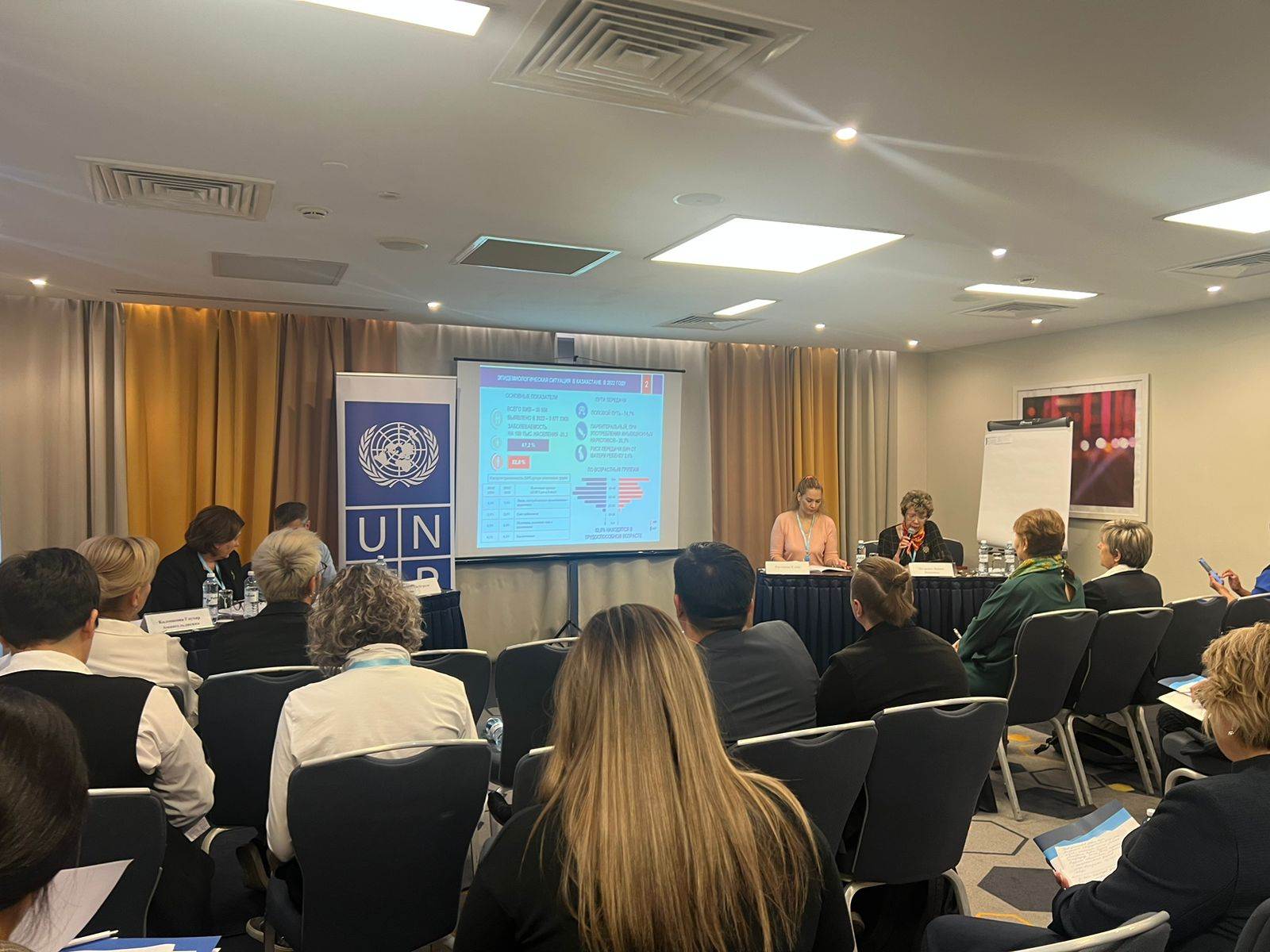SEPTEMBER 29, 2023 - Representatives of Kazakhstan's Ministry of Health and Ministry of Labor and Social Protection, as well as non-governmental, academic and international organizations gathered in Astana, Kazakhstan for a national dialogue on expanding access to HIV services for key populations*. The event was organized with the support of the United Nations Development Program (UNDP) through the SCALE Initiative.
Participants discussed issues facing key populations, with a focus on those related to discriminatory and punitive laws that hinder access to HIV services and increase the risk of infection.

Over the past five years, countries with punitive laws prosecuting key populations have seen less progress in meeting HIV testing and treatment targets: data show that the proportion of people living with HIV who know their HIV status and have achieved viral suppression has been significantly lower than in countries that have protective laws.
Currently, community representatives from the Eastern Europe and Central Asia region continue to advocate for legislative changes to decriminalize HIV transmission.
During the dialogue, participants focused on strengthening existing collaborative mechanisms and cross-sectoral programs to more effectively address HIV and to reform existing punitive laws. At the end of the meeting, the parties exchanged views and pledged to develop further steps to achieve the set goals, including through mechanisms established within the SCALE Initiative.

The SCALE initiative is a UNDP-led partnership with PEPFAR, UNAIDS and the Global Fund to strengthen and scale up key-population-led efforts in countering discriminatory laws, policies and practices and HIV-related criminalization, thus accelerating progress towards the global 10-10-10 HIV targets.
*UNAIDS considers gay men and other men who have sex with men, sex workers, transgender people, people who inject drugs and prisoners and other incarcerated people as the five main key population groups that are particularly vulnerable to HIV and frequently lack adequate access to services.

Please log in or sign up to comment.